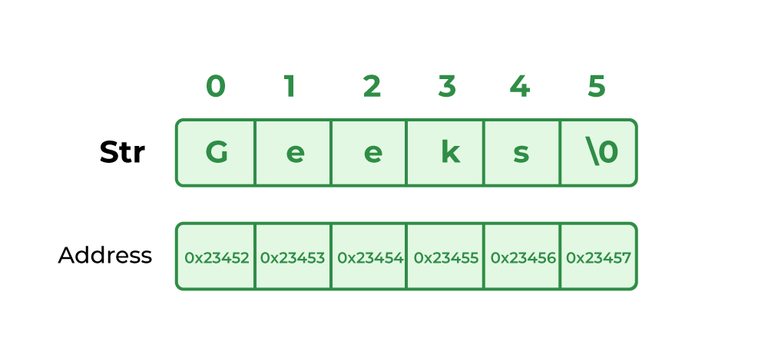Why Are Strings Immutable in Java? Necessary Expertise for Developers
Why Are Strings Immutable in Java? Necessary Expertise for Developers
Blog Article
Checking Out the Advantages of Immutable Strings in Modern Programs Paradigms
In the realm of modern programming standards, the principle of immutable strings stands as a cornerstone of durable software program advancement. By taking on immutable strings, developers can make sure enhanced information honesty, boosted string security, streamlined debugging processes, increased security actions, and efficient efficiency optimization.
Enhanced Information Honesty

By avoiding the alteration of string objects, immutability eliminates the threat of unintentional modifications to the information they hold. This not only boosts the protection of the information however likewise enhances the integrity of the code that counts on these strings.
Immutability likewise sustains much safer multithreading environments, as concurrent access to immutable strings does not pose the risk of information corruption via simultaneous adjustments. This home simplifies the process of dealing with strings in identical shows circumstances.
In significance, immutability serves as a safety guard around the information saved within strings, improving their honesty by making sure that once specified, their worths continue to be the same throughout the program's execution.

Boosted String Safety And Security
Immutable strings improve the thread safety and security of programs by ensuring that when a string item is produced, its value can not be changed. This property eliminates the danger of concurrent strings trying to modify the very same string simultaneously, which could result in data corruption or inconsistent states in the program - Why are strings immutable in Java?. In a multi-threaded environment, where multiple strings access and manipulate information simultaneously, the immutability of strings offers a degree of security by guaranteeing that the data remains unmodified throughout its lifecycle
Streamlined Debugging Procedures
Offered the improved thread safety assisted in by unalterable strings, a substantial advantage emerges in the realm of streamlined debugging processes. Unalterable strings, when produced, can not be changed, making it simpler to map the circulation of data and determine the source of insects in a program. This immutability makes sure that strings stay regular throughout the execution of the program, decreasing the probability of unanticipated adjustments that could lead to errors.
When debugging with mutable strings, programmers typically experience issues where a string's worth is customized inadvertently, making it challenging to pinpoint the origin of an insect. Nonetheless, with unalterable strings, the information continues to be unmodified, allowing designers to concentrate on assessing the real reasoning of the code rather than locating where and when a string was changed improperly.
Additionally, immutable strings streamline the debugging procedure by making it possible for less complicated recreation of insects. Considering that unalterable strings do not alter state, programmers can recreate and research bugs better, causing quicker my link recognition and resolution of concerns within the codebase. This structured debugging operations inevitably adds to greater software application high quality and improved total development effectiveness.

Raised Security Procedures
Enhancing data protection and strengthening system stability, the use of immutable strings in software applications adds considerably to boosted security actions. Unalterable strings, when created, can not be changed, providing a crucial protection versus malicious meddling or unapproved access. By guaranteeing that delicate data kept in strings stays unchanged throughout the program's implementation, the risk of information breaches or shot attacks is greatly minimized. Why are strings immutable in Java?. Immutable strings additionally play a vital duty in stopping typical security vulnerabilities such as buffer overflows and SQL shot strikes, as efforts to manipulate string information at runtime are he has a good point naturally limited.
Furthermore, the immutability of strings enhances the predictability of program actions, making it simpler to verify inputs and avoid unanticipated adjustments that can endanger protection. This predictability simplifies the procedure of auditing and verifying code, making it possible for programmers to determine prospective protection technicalities better. In general, incorporating unalterable strings into software advancement techniques not only boosts the robustness and integrity of applications yet likewise reinforces their durability versus security hazards.
Effective Efficiency Optimization
When dealing with mutable strings, procedures like concatenation or substring creation usually result in the creation of brand-new string items, leading to memory expenses and raised processing time. By permitting strings to stay continuous and unchangeable, unalterable strings assist in far better memory monitoring and caching opportunities, ultimately increasing the overall effectiveness of the software application.
Because immutable strings can not be customized once produced, they can be shared throughout strings without the threat of unanticipated changes, lowering the demand for synchronization systems and improving concurrency. Unalterable strings simplify debugging procedures as programmers can trust that a string's value will stay consistent throughout the program's execution, removing prospective errors caused by mutable state modifications.
Verdict
In verdict, the advantages of using immutable strings in modern-day programs paradigms can not be overemphasized. Improved information stability, enhanced thread safety, simplified debugging processes, enhanced safety and security procedures, and effective efficiency optimization all add to the total performance of shows jobs. By integrating immutable strings into programming practices, designers can profit from a click here now more reputable and durable codebase.
Immutability, a vital feature of strings in programs languages such as Java and Python, makes certain that once a string object is created, it can not be modified or modified.Immutable strings improve the string safety and security of programs by making sure that when a string object is created, its value can not be changed. Unalterable strings also play an important duty in stopping typical safety and security vulnerabilities such as buffer overflows and SQL injection strikes, as attempts to control string data at runtime are naturally limited.
By allowing strings to stay stable and continuous, unalterable strings promote far better memory monitoring and caching possibilities, inevitably increasing the overall performance of the software.
Unalterable strings simplify debugging processes as programmers can rely on that a string's worth will certainly remain consistent throughout the program's execution, removing prospective errors caused by mutable state changes.
Report this page